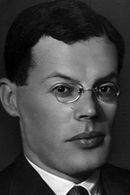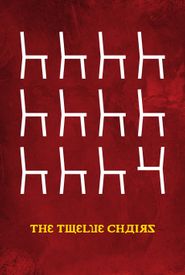Ilya Arnoldovich Fayzilberg, better known by his pen name Ilya Ilf, was born on October 15, 1897, in Odessa, Russian Empire, now Odesa, Ukraine. His father, Arnold Fayzilberg, was a clerk at a bank, and Ilya graduated from a Technical School in 1913.
Ilya worked as a clerk, telephone technician, and had various industrial jobs in Odessa before the Russian Revolution. After the revolution, he became an accountant and statistician, and later joined a satirical magazine called 'Sindetikon' as a journalist. He published his first poems under a female pseudonym.
In 1923, Ilya moved to Moscow and became a staff journalist for the 'Gudok' newspaper, where he met notable writers such as Mikhail A. Bulgakov and Yuriy Olesha. In 1925, he met Yevgeni Petrov, and they began writing together. Their first novel, 'Dvenadtsat Stulev' (Twelve Chairs),was published in 1928, featuring a main character named Ostap Bender, a charming and smooth criminal.
The novel was an instant success with the general public but was criticized by Soviet critics for satirizing the loss of civility and the degradation of cultural values in the Soviet Union. Despite this, the book was praised by writers such as Vladimir Mayakovsky and Vladimir Nabokov.
Ilya and Petrov's second novel, 'Zolotoi Telenok' (Golden Calf),was published in 1931, and both novels became best-sellers in the Soviet Union. Several film and TV adaptations were made in the Soviet Union, and an American adaptation was made in 1970 by director Mel Brooks, starring Frank Langella as Ostap Bender.
During 1933-1934, Ilya and Petrov traveled across Europe, and in 1935, they made a journey by car across the United States, which inspired their popular book 'Odnoetazhnaya Amerika' (The One-Story America) in 1937. Ilya Ilf died of tuberculosis on April 13, 1937.
His partner, Yevgeni Petrov, died in a plane crash on July 2, 1942, on a flight from Sevastopol to Moscow. In 1948, Andrei Zhdanov attacked many Soviet intellectuals and banned the books of Ilf and Petrov, among others. The ban was lifted eight years later during the political "Thaw" initiated by Nikita Khrushchev in 1956.






















